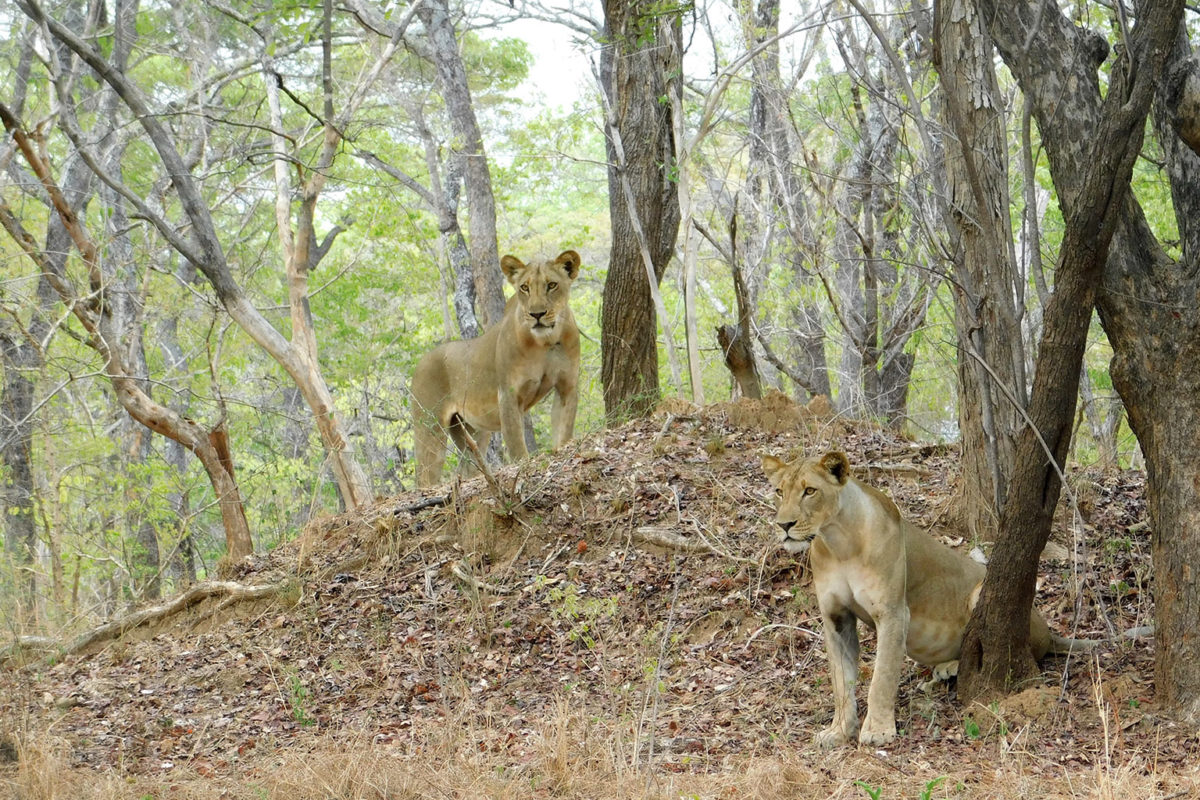In the wake of George Floyd’s killing last year, long-running concerns about discrimination, colonial legacy, privilege, and power dynamics in conservation have gained prominence, forcing many organizations in the sector to reckon with their origins and how they operate. Current and historic injustices against Indigenous Peoples and local communities in the name of establishing protected areas, racism and abusive practices within institutions, representation in leadership, and disparities in funding and advancement opportunities are but a few of the areas that have drawn particular attention over the past year. But while there is certainly an uptick in reflection and discussion, it’s unclear whether this period will result in lasting, meaningful change or if the sector will revert back to business-as-usual.
Colleen Begg, a South African conservationist who co-founded the Niassa Carnivore Project in Mozambique, says she isn’t sure either, but meaningful transformation won’t come on its own — it will require dedicated and sustained efforts to drive real change.
“I have had more conversations about privilege, racism, and sexism in conservation in the last three years than before but there is still such a long way to go,” Begg told Mongabay during a recent interview. “To me conservation really is one of the last bastions of racism and exclusion on the continent and it is very resistant to change.”

As a white South African who has never lived outside Africa and has worked in conservation for 30 years, Begg has seen how race, gender, and privilege play out in the African conservation sector.
“We can be antiracist but still be enormously privileged,” Begg said. “I also battle with this feeling of ‘unbelonging.’ I do not have another passport, nor have I studied abroad, yet still I am often not seen as African and it hurts, I get it. But, for me, white conservationists in Africa must learn to lean into this discomfort if we are going to be able to come out the other side with new conservation models that work and are inclusive, sustainable, and effective.”
“We cannot change who we are, but we can open ourselves up to criticism and change and we can also start to use our privilege and influence to change how conservation is done. I do think ‘the arc of the moral universe bends towards justice,’ but I do not think it bends on its own, we need to help catalyze the change and not sit on the side-lines, quietly murmuring our support whilst still being careful not to put our head too far above the parapet in case we are called out or lose our positions, our salaries, our privilege. Nothing good comes without cost.”

Begg points to leadership development, creating spaces for new ideas and voices, and establishing pathways for people from underrepresented groups to advance within organizations as important mechanisms for driving change.
“I am 52, and many conservationists of my generation are currently in leadership positions in conservation organizations. There really is an opportunity to use our influence and voices strategically,” she said. “As a founder, we can set up succession plans that allow us to step out of our roles and allow others to move up into these positions rather than always hiring from outside or even worse, promoting family into these high-level positions.”
“If we have conservation organizations or even meetings that are less toxic there will be greater trust, less turnover, higher productivity, higher resilience and we will attract the best African minds to conservation and will be able to hear their ideas. It will be a viable career option and growth opportunity.”
With this idea in mind, Begg co-founded Women for the Environment, Africa in 2017. WE Africa is working to bring more African women into positions of power in conservation.

Conservation can also benefit in learning from success stories from the field. In that respect, Begg says that the pandemic — while bringing incalculable loss and hardship for communities across Africa — has provided further evidence that there are effective alternatives to top-down conservation models.
“Some of the conservation organizations that weathered the COVID storm the most effectively were those that were locally managed and staffed, nimble, resilient, and deeply embedded in the communities around their work areas. They were able to respond to the crisis positively because they were in situ and not reliant on expats that were in lock down half a world away.”
For example, Begg said that her organization’s on-the-ground work was not heavily impacted by COVID.
“Our team is mainly local and all Mozambican, so they continued as normal. Many of our programs are deeply embedded in the villages like our community guardian program where we have guardians in 42 different villages that collect information on mortality, presence, fishing and conflict as citizen scientists. We connected with them on WhatsApp so there was very little change.”
More impacted were the communities that depend on tourism to sustain village livelihoods. Begg says those communities are hoping for a rebound when international travelers start going on safaris again.

Begg spoke about these topics and more in a June 2021 conversation with Mongabay founder Rhett A. Butler.

